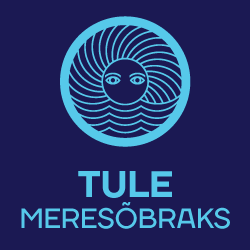The sea is our future and opportunity
From country by the sea to maritime country!
The sea has been an important booster of our economy and the main artery of traffic and trade in goods and has played an important role in the development of fishery as well as the agriculture and industry of coastal regions. During the Soviet period, fishing and maritime affairs were almost completely forbidden and this interrupted the continuity of these fields as well as the local beach culture. But despite the 50-year break, neither physical nor intellectual cultural heritage has been destroyed completely. The ambition to become a maritime country again is on a gradual increase.
Coastal regions are now considered to be areas of the fastest development, but in the present-day economy fishing, agriculture and production are not very profitable. This has placed coastal regions in a new situation and made them face economic challenges. Recently, our clean sea and air have begun to be seen as resources. An important source of livelihood for the people who live on the coast has become tourism. It is certainly not possible to talk about massive tourism, but the threat that tourism will start to endanger both the cultural and natural values on which it stands is one of the questions that has to be dealt with before it is too late.
It is our fortune to live by the sea and have such a quantity of islands and beautiful, clean nature. For the purpose of miscellaneous protection and development of coastal regions, it is – in addition to mutual cooperation between local communities, local governments and different organisations – more important to have a wider social understanding of the values that we want to preserve and cultivate, knowledge of what the status of a maritime country means and a vision for how to achieve these goals.
In the final months of the Year of Maritime Culture we will talk about the future of Estonia as a maritime country. Through important discussions we will raise various topics through which we can debate about the role of the sea in the future of both ourselves and the Estonian state.
-The centre of our national self-definition has been the identity of a settled peasant, but why have the characteristics related to a maritime country been less often emphasised?
-What are our dreams, opportunities and needs to become a fully qualified maritime country?
-What are the restrictions that prevent our wishes from coming true?
-What should change at the level of law and in people’s dispositions and attitudes in order for the restrictions to become opportunities?
-How can we encourage the development of economy and tourism in a way that does not hinder the preservation of the beach culture characteristic to us?
The aim of the discussions of the Maritime Culture Year is to realise our historical, natural and cultural heritage more clearly and to collect and develop ideas in order for Estonia to be an even better place to live, work and visit in the future.



